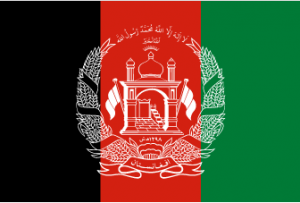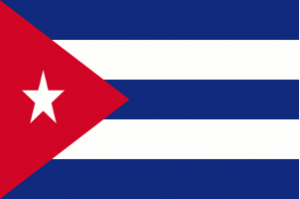May 12, 2023
Dear Friends,
CANVAS is delighted to bring you another issue of our weekly report!
Ukraine said its armed forces broke through Russian formations northwest of Bakhmut, which Moscow’s forces have been trying to capture for nine months. Yevgeny Prigozhin, financier of the Wagner Group, appeared to confirm the Russian retreat. The UK has confirmed it is supplying Ukraine with long-range missiles. Britain is the first major Western country to supply arms that could strike targets deep into occupied Crimea.An anti-government movement is planning new protests in Guinea after its leaders said at least seven people were killed and 32 wounded during demonstrations in the capital, Conakry, and other cities. Police in riot gear cracked down on demonstrators who threw rocks and burned tires during the latest in a series of protests against the military government, which seized power in 2021.Violence during protests in Senegal’s capital, Dakar, has killed one teenager and wounded 30 people as young protesters took to the streets against an increasingly “repressive state.” The city witnessed violent protests when schoolchildren demanding a high school to be built instead of a police station were confronted by police in full gear.On Tuesday, Pakistan’s anti-corruption agency arrested former prime minister Imran Khan at Islamabad High Court on corruption charges. Khan was indicted by a high court in Islamabad on Wednesday and accused of the unlawful sale of state gifts during his term as prime minister. On Thursday, Pakistan’s Supreme Court declared Khan’s arrest illegal and ordered his immediate release. The decision comes two days after Khan’s arrest sparked violent protests between his supporters and police, resulting in thousands arrested, dozens injured, and eleven deaths.

A UN report released on Monday condemned the Taliban for public executions, lashings, and stonings, requesting the executions be immediately suspended. According to the report, 274 men, 58 women, and two boys were publicly flogged in Afghanistan in just the previous six months. The report also noted that female UN workers had been detained, harassed, and faced travel restrictions since the ban on Afghan women working for the organization.
At a meeting between China, Pakistan, and Afghanistan in Islamabad, foreign ministers of each country vowed to further expand trilateral cooperation on foreign investments, border security, and counterterrorism. China encouraged Afghanistan to reform its bans and restrictions on women in education and public life to gain the international community’s trust. At the end of the meeting, the three countries released a statement stressing the need to prevent any individual, group, or party from committing terrorism on their territories.

According to the Iranian judiciary, two men were executed on Monday for blasphemy convictions. The men, named Yousef Mehrdad and Sadrollah Fazeli Zare, were hung early on Monday after being accused of possessing and publishing anti-religious content. Additionally, the judiciary announced that three men, alleged members of a drug smuggling cartel, were hung on Wednesday. The UN Human Rights Chief Volker Türk denounced Iran’s record of at least 209 executions since January and called on authorities to halt all executions.

As Lebanon’s financial crisis worsens, angry bank depositors staged a sit-in in front of parliament on Tuesday in Beirut. The demonstration was called for last week by the Depositors’ Outcry Association, a local organization defending bank depositors’ rights, to demonstrate against the state’s current financial policies and demand the return of their deposits. The army and security forces were deployed, while some protesters set fire to tires and ATMs, and obstructed the roads near the parliament.

The Democratic Republic of Congo and Uganda have discussed a possible crude oil pipeline to export petroleum. Uganda is developing the $3.5 billion, 1,445km (898-mile) East African Crude Oil Pipeline (EACOP) from oil fields on its western border with DRC to Tanga, Tanzania. The controversial pipeline is for transporting Uganda’s crude oil to international markets when it starts production in 2025.

Fighting between the army and RSF continues in Khartoum and the surrounding cities despite ongoing peace talks hosted by Saudi Arabia in Jeddah. The UN estimates over 700,000 people are now internally displaced, and at least 150,000 have fled the country. Aid Agencies such as Islamic Relief and the World Food Programme have struggled to offer services as the country is highly insecure. UN spokesperson António Guterres said, “Most, if not all, United Nations agencies and our humanitarian partners have been impacted by large-scale looting,” adding to the desperation and calls to protect civilian infrastructure. While the talks have not yielded progress, US negotiators remain “cautiously optimistic” about reaching a ceasefire agreement.

Well-known author, Tsitsi Dangarembga, had her ruling of inciting violence overturned by the high court this week. Last year she was found guilty after holding a sign saying, “We want better. Reform our institutions.” Her initial charge of a six-month sentence and a 70,000 Zimbabwean dollar fine brought attention to the democratic stagnation in the country.

During a press conference on Wednesday, Bolivia’s president voiced openness to using the Chinese yuan for international trade, citing similar efforts taken by Argentina and Brazil to use the Asian currency for trade with China. For decades, international trade transactions have been valued in US dollars, particularly for significant commodity markets like grain and oil. President Arce said Bolivia could not afford to sit out the trend of South American countries agreeing to trade with China in yuan.

Cubans in Caimanera took to the streets in the first known anti-government protests of the year in Cuba. Videos shared by dissidents and human rights groups showed men in military uniforms and civilian clothing clashing with protesters while onlookers recorded the events with cell phones. The videos showed the protesters voicing anti-government chants and cries of “freedom.” Tensions have run high for several weeks as a dire fuel shortage has stressed the country’s public transportation, power generation, and food supply.

On Wednesday, the Nicaraguan government announced that the country’s chapter of the Red Cross would be closed down. The National Assembly shut down the Nicaraguan Red Cross after it was accused of “attacks on peace and stability” during anti-government protests in 2018. The local Red Cross claims that it just assisted in providing medical care for injured demonstrators at the time. Additionally, under the new law, Red Cross properties in Nicaragua will be seized and turned over to the government. In its place, lawmakers ordered the country’s health ministry to establish “a new Nicaragua Red Cross.” It’s unclear how the country will obtain the funding for a new organization.

Prominent Republican politicians, Donald Trump, and George Santos, continued encounters with the US justice system. A jury found Donald Trump liable for sexually abusing columnist E. Jean Carroll in 1996, awarding her $5 million, while Trump continued to mock and dismiss the case. Meanwhile, Rep. George Santos pleaded not guilty to seven counts of wire fraud, three counts of money laundering, one count of theft of public funds, and two counts of making materially false statements to the House of Representatives.
This week marks the end of Title 42, coronavirus restrictions on asylum that allowed the US to expel migrants for the last three years. As asylum seekers flock to the US-Mexico border, the Biden administration will need a plan to handle an estimated 10,000 migrants daily. Biden also met to no avail with congressional leaders to avert government default on its debt set to occur on June 1.

White House national security adviser Jake Sullivan told senior Chinese foreign policy adviser Wang Yi that the Biden administration is “looking to move beyond” tensions spurred by the US shooting down a Chinese spy balloon. Top officials agreed to maintain communication with both sides.
Canada expelled Chinese diplomat Zhao Wei over allegations he tried to intimidate a Canadian lawmaker and his family critical of China’s treatment of its Uyghur Muslim minority. Hours later, China’s Ministry of foreign affairs said it would expel a Canadian diplomat in retaliation for what it called Ottawa’s “unreasonable actions.”

This week, Britain’s Minister for Investment, Dominic Johnson, held a series of meetings with government officials and executives in Hong Kong during the first official visit from a senior British official to the city in five years. Relations between Britain and Hong Kong have been strained since the protests and the creation of national security law in Hong Kong. Johnson said his visit was to promote and strengthen UK-Hong Kong investments and trade.
On Wednesday, Hong Kong’s Legislative Council passed a legal amendment that allows a judge to prevent foreign lawyers from working on national security cases. The amendment codifies a previous ruling from China on using foreign lawyers in national security cases. The new law successfully blocks media mogul and pro-democracy activist Jimmy Lai from obtaining a UK lawyer for his high-profile case.

A convoy of regional diplomats was attacked while carrying humanitarian aid to northeastern Myanmar. Singapore and Indonesia condemned the attack, and it became a core topic at ASEAN’s meeting this week in Indonesia. Leaders at the meeting called for an immediate end to violence in military-ruled Myanmar in an effort to create a window for dialogue and the delivery of humanitarian aid as fighting intensifies.
Indonesian officials said Sunday they freed 20 of their nationals who were trafficked to Myanmar as part of a cyber scam amid an increase in human trafficking cases in Southeast Asia.

ASEAN continues to condemn ongoing violence in Myanmar and struggles to get the military junta to commit to peace. ASEAN representatives met in Indonesia this week to discuss the crisis. Junta generals have been barred from the meetings for failing to implement the previous 5 Point Consensus peace plan.
Human Rights Watch called for foreign governments to stop funding the junta and fueling the fighting by supplying jet fuel. Over 160 civilians were targeted and killed by a thermobaric “vacuum” bomb earlier in the month. This air-fuel-based explosive was not the first instance of civilians targeting war crimes by the junta.

The daughter of the formerly overthrown and exiled prime minister, Paetongtarn Shinawatra, has a significant polling lead in the upcoming May 24th election for the Pheu Thai opposition party. This week she returned to campaigning just days after giving birth.

Russia lifted the direct travel ban for Georgians, allowing visa-free travel to resume. Moscow banned direct flights to Georgia in 2019 after anti-Russian protests. The move indicates a warming of relations between the two countries after the “foreign agent” bill that sparked renewed protests against Russian influence in March.

Belarusian activists and their families remain threatened inside and outside the country. Mikalai Klimovicz was imprisoned for sharing a caricature of Lukashenko on social media and died this week, two months into his jail sentence. Klimovicz suffered bouts of heart disease, but authorities have not confirmed his cause of death. Artyom Liabedzk, the son of an advisor to Belarus’s exiled opposition leader, has spent a month in Okrestina, a detention center known to torture prisoners, for “swearing at police” and is now facing up to five years for “financing extremism.”